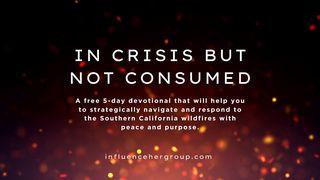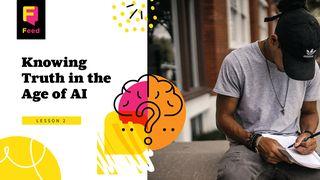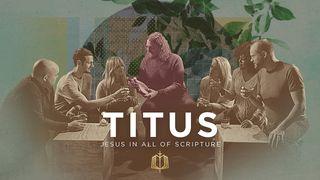What Is God’s Purpose for My Life? The Sermon on the MountSample

Day 6 Worry Not
After covering the motivation of our hearts, Jesus talks about worrying, something which can distract our attention from him. The Greek phrase translated here as “do not be anxious” is me merimnate, and it carries the idea of being “divided into parts” or “drawn in opposite directions.”
We cannot remain focused on what God is doing in the present if our attention is constantly pulled to the future. As Jesus says in Matthew 6:34, "Do not be anxious about tomorrow, for tomorrow will be anxious for itself. Sufficient for the day is its own trouble." And though concerns over what is to come are not the sole source of anxiety in our lives, they are emblematic of the worrying Jesus describes in this passage.
Christ's intent is not that we never experience the emotion of fear or anxiety. God never commands us how to feel, which applies both to anger and to lust as well. Rather, his instruction pertains to what we do with those emotions and the degree to which we allow them to control our thoughts and actions.
Why should we not be anxious?
For one, we can take our concerns to the Lord, who loves us like a good father. When Jesus talks about the bread and the fish, it's helpful to know that bread in ancient Israel often resembled the sun-parched stones that lined roads throughout many parts of the nation. Similarly, snakes often resembled the fish and eels caught in first-century Judea, but—unlike their aquatic counterparts—snakes were considered unclean to eat.
In both examples, the idea is that no good father would give their child something to eat that was bad for them.
When we allow our anxieties and worries to make us doubt the faithfulness of our heavenly Father, it can be easy to become that petulant child. We feel the rumble in our stomachs, see what appears to be an appetizing answer, and cannot understand why God would refuse to grant our request.
But as verse 11 reminds us, Jesus does not promise that our heavenly Father will give us the gifts for which we ask. Rather, he promises to give us good gifts when we ask.
On this side of heaven, we may not always understand how God's answers to our prayers could be considered good. But he has given us enough evidence to trust that they are.
Are you allowing your anxiety or fear to drag you down, away from God and his plans for you? How is the anxiety betraying a lack of trust in God? Bring your worries to him and sit with him; he’s happy to hear them and patient to listen, knowing those feelings won’t always vanish immediately.
In this passage, Jesus also examines judgment. The prohibition against judgment that resides at the heart of these verses is absolute. However, the nature of that forbidden judgment is more nuanced than we often recognize. The Greek word used here for judgment is krino, which essentially means subjecting someone to harsh, sharp, and unjust criticism in a habitual way. It doesn’t mean we should not name sin in people’s lives, ours included, but it must be done in love.
Ask Jesus to convict you about the sin of judgment. Do you look down on others for their imperfections? Do you constantly criticize anyone in your life? Repent and ask forgiveness.
Scripture
About this Plan

Jesus’ Sermon on the Mount resounds in history as the most compact teaching, full of wisdom and truth for our daily lives. Christ’s teachings aren’t just practical; they’re a radical call to love others and follow him. Far from pithy advice, Jesus’ sermon represents a heavy demand for those who want to become his disciple. Sit at the feet of Jesus with this companion to the Sermon on the Mount.
More
We would like to thank Denison Forum for providing this plan. For more information, please visit: https://www.denisonforum.org/
Related Plans

How Sweet the Sound
![[Know This] Promises of a Precious Faith](/_next/image?url=https%3A%2F%2Fimageproxy.youversionapistaging.com%2Fhttps%3A%2F%2Fs3.amazonaws.com%2Fyvplans-staging%2F55603%2F320x180.jpg&w=640&q=75)
[Know This] Promises of a Precious Faith

Art in Scripture: The Earth Is the Lord's

In Crisis but Not Consumed

The Leadership Style of Jesus

Our God Who Pursues: Guiding Us Back to Him

Lent Youth Guide | Jesus' Real Talk During His Hardest & Darkest Moments

Week 2: Knowing Truth in the Age of AI

Lent: The Journey of Letting Go
